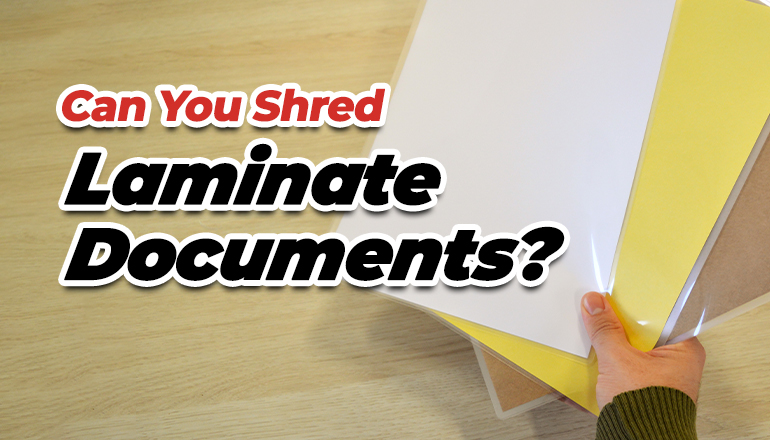Shredding Moldy Paperwork: Is It Safe?

Understanding Mold and Its Dangers

Mold is a type of fungus that thrives in damp, humid environments. It reproduces by releasing tiny spores into the air, which can settle on various surfaces, including paper. When these spores land on something organic like paper, and find the right conditions, they can grow into new mold colonies. Here are some key points about mold:
- Health Risks: Exposure to mold can lead to respiratory issues, allergies, and exacerbate conditions like asthma.
- Appearance: Mold on paper usually appears as black or green fuzzy spots.
- Impact on Paper: It degrades the quality of paper, making it brittle, discolored, and susceptible to tearing.
Should You Shred Moldy Paperwork?

Shredding moldy paperwork involves considerations for both personal health and effective document destruction:
- Safety First: Handling moldy paperwork can expose you to mold spores. This is particularly dangerous for those with allergies or respiratory conditions.
- Effectiveness: Shredding can make moldy paper more dispersible, potentially spreading spores further.
🔍 Note: Consider wearing protective gear like masks, gloves, and eye protection when dealing with moldy paperwork.
Steps for Safely Handling Moldy Paperwork

If you decide to shred moldy documents, follow these steps:
- Containment: Place the moldy paperwork in sealed bags or plastic containers to limit spore dispersal.
- Outdoor Processing: If possible, take the documents outside to minimize indoor spore spread.
- Protective Gear: Wear a respirator, gloves, and eye protection.
- Shredding: Use a high-quality shredder that can handle paper efficiently to minimize the spread of spores.
- Clean Up: After shredding, clean the area with a mixture of bleach and water to kill any remaining mold spores.
💡 Note: Regular maintenance and cleaning of your shredder will help prevent mold growth inside the machine.
Alternatives to Shredding Moldy Paperwork

If you're concerned about health risks, here are alternative ways to dispose of moldy paperwork:
- Freezing: You can freeze the documents to kill mold and then shred them when frozen.
- Encapsulation: Seal the moldy documents in plastic bags or airtight containers to prevent spore release and dispose of them as regular waste.
- Professional Services: Hire professional document destruction services that have the equipment and protocols to handle moldy paperwork safely.
🌿 Note: If mold infestation is severe, consider consulting a mold remediation expert.
Safeguarding Your Health While Managing Mold

Whether you decide to shred or use alternative methods, here are some tips to protect your health:
- Protective Equipment: Use masks, gloves, and eye protection.
- Work Outside: Performing tasks outdoors reduces indoor contamination.
- Disposal: Dispose of mold-contaminated materials in sealed bags or plastic containers.
- Personal Hygiene: Wash hands and clothes thoroughly after dealing with mold.
Summing Up the Shredding Process

Handling moldy paperwork involves balancing document destruction with health considerations. Shredding can be done safely, but alternatives like freezing or professional disposal services might be preferable for extensive mold growth. By adhering to the outlined safety measures and wearing protective gear, you can effectively manage and dispose of moldy paperwork while protecting your health and home environment from further mold spread.
Can mold grow back on shredded paper?

+
If the shredded paper remains in a moist environment, mold can potentially grow back. Ensure the shredded material is kept dry to prevent regrowth.
How do I clean my shredder after handling moldy paperwork?

+
Disassemble the shredder if possible and clean each part with a mixture of water and bleach or a disinfectant solution. Allow all parts to dry thoroughly before reassembling.
Is it necessary to dispose of moldy paperwork immediately?

+
Yes, the longer you keep moldy paperwork, the higher the risk of mold spreading. Prompt disposal helps control the spread of mold spores.